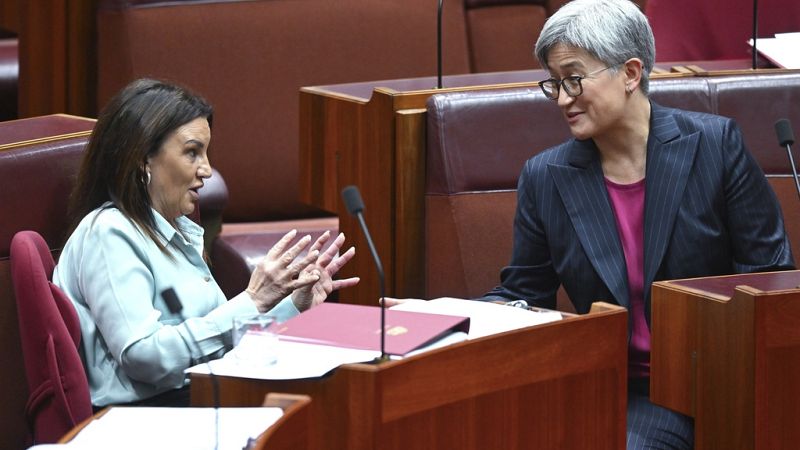Australia passes world-first ban on social media for under 16s into law

Lawmakers in Australia have passed a bill that will impose legal restrictions on under 16s being able to use social media platforms.
The legislation means Australia will now have some of the strictest laws in the world when it comes to social media access.
The Australian government cited child mental health and well-being concerns as a driver for the law to protect minors from the "harms" of social media.
The law will come into force by the end of next year, meaning that underage access to platforms such as X, Instagram and TikTok will be blocked for children aged 16 or under.
Platforms face stiff penalties of 50 million Australian dollars (€30.8 million) if found to have failed in preventing youngsters from holding accounts.
They will be given a year to work out how they will implement the ban.
Highest age limit in the world
Attempts have been made in other countries to restrict social media usage for children, with a law passed in the US state of Utah found to be unconstitutional by a federal judge.
France also passed in July last year that prevents children under 15 from accessing social media without parental consent.
The Australian proposal, which will impose the highest age limit in the world, was backed with bipartisan support in a vote by the Senate on Thursday, which saw the legislation pass comfortably by 34 votes to 19.
The bill had already been voted on by the House of Representatives, the lower chamber of the parliament, on Wednesday with 102 MPs voting in favour of the measure against 13 who opposed it.
Following the Senate vote, the bill must return to the House of Representatives to approve any amendments on Friday before it officially becomes statute but this is seen as a formality.
Mixed reception
While supporters - including politicians from both major political parties - believe the ban will protect children, the law is not without its critics.
Many child welfare and mental health advocates have voiced concerns about the law's unintended consequences.
Senator David Shoebridge, from the minority Greens party, said mental health experts agreed that the ban could dangerously isolate many children who used social media to find support.
"This policy will hurt vulnerable young people the most, especially in regional communities and especially the LGBTQI community, by cutting them off," Shoebridge told the Senate before the vote.
Christopher Stone, executive director of Suicide Prevention Australia, the governing body for the suicide prevention sector, said the legislation failed to consider positive aspects of social media in supporting young people's mental health and sense of connection.
"The government is running blindfolded into a brick wall by rushing this legislation. Young Australians deserve evidence-based policies, not decisions made in haste," Stone said in a statement.
Today

